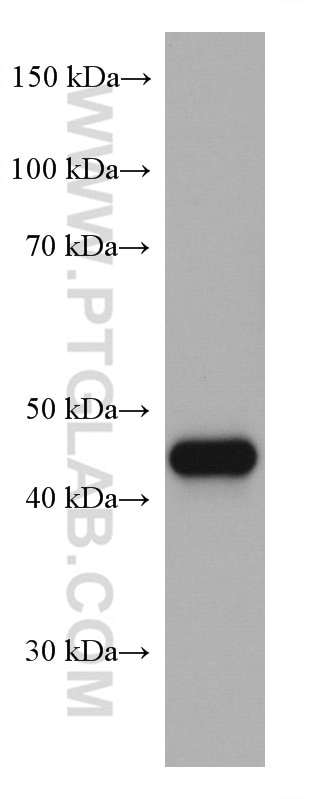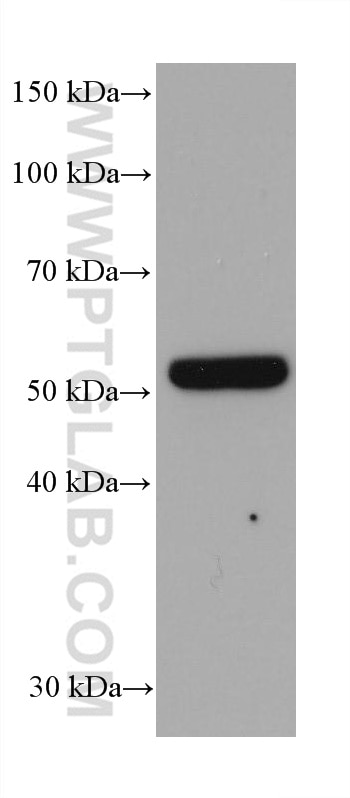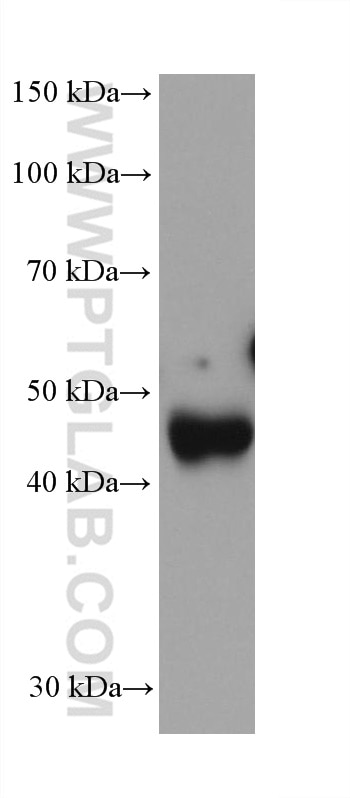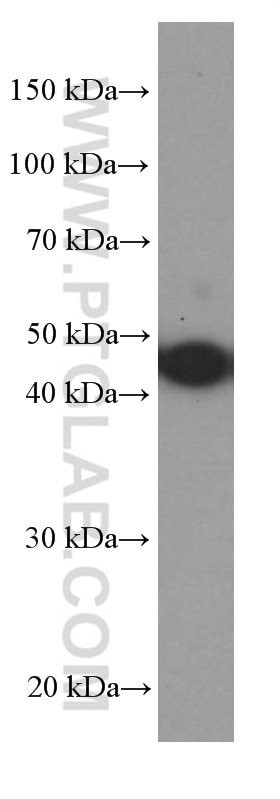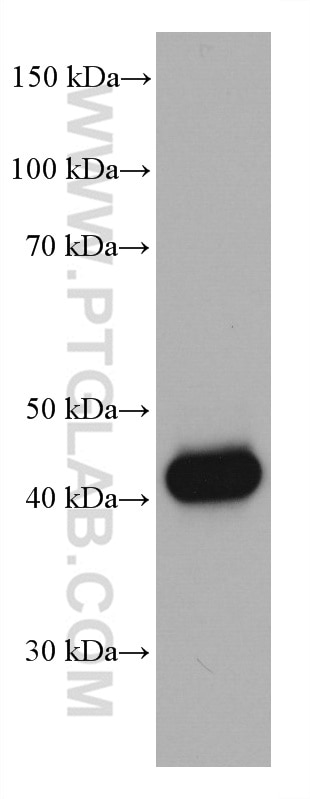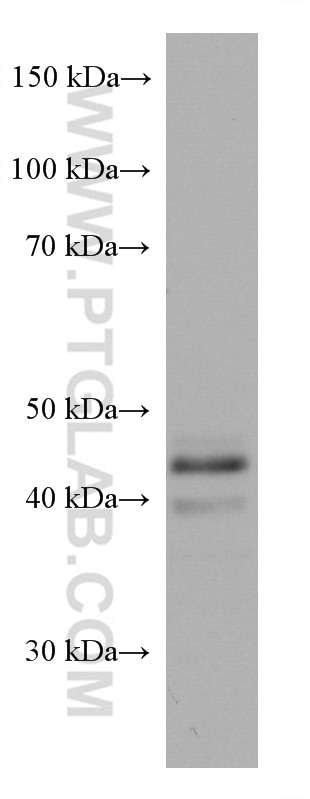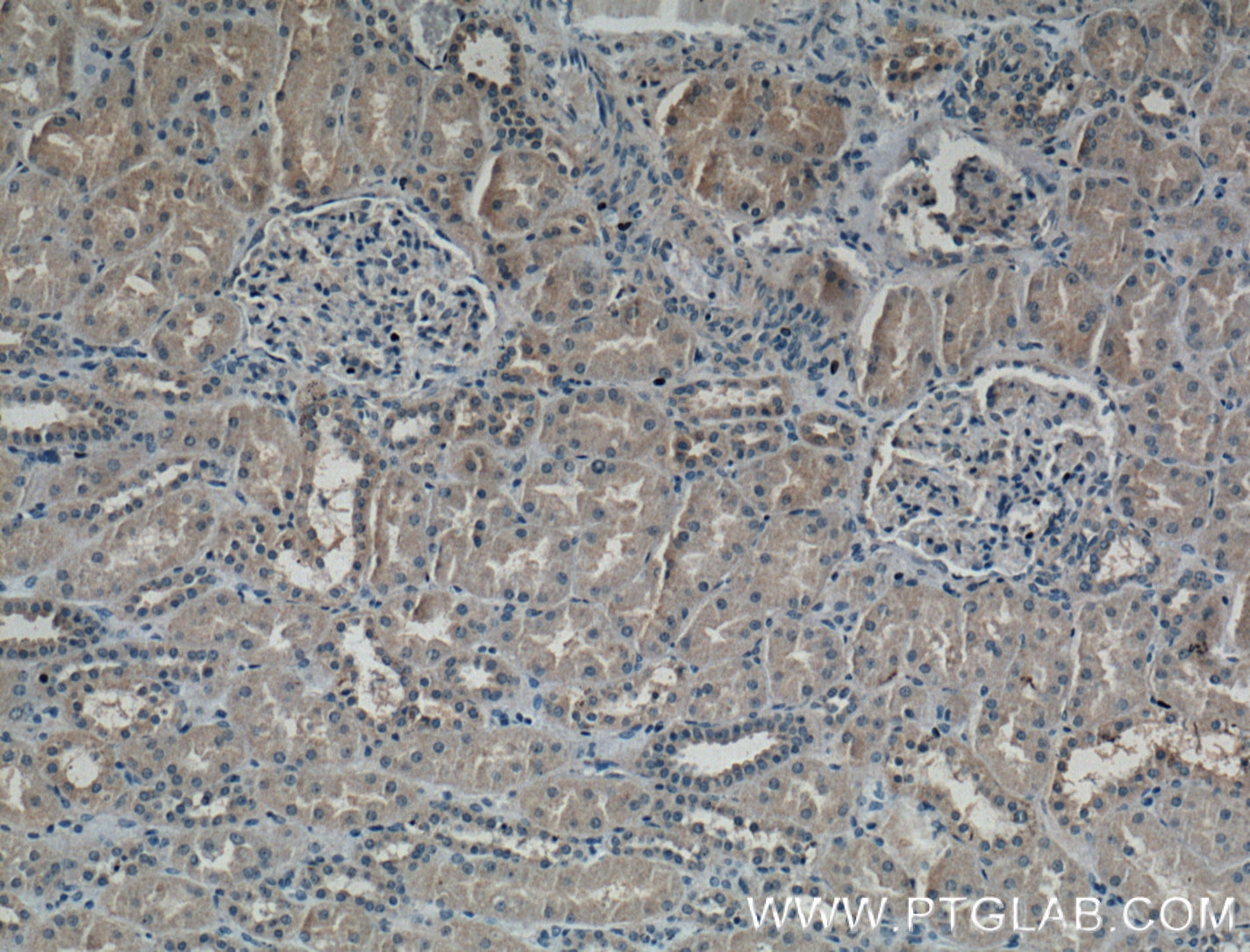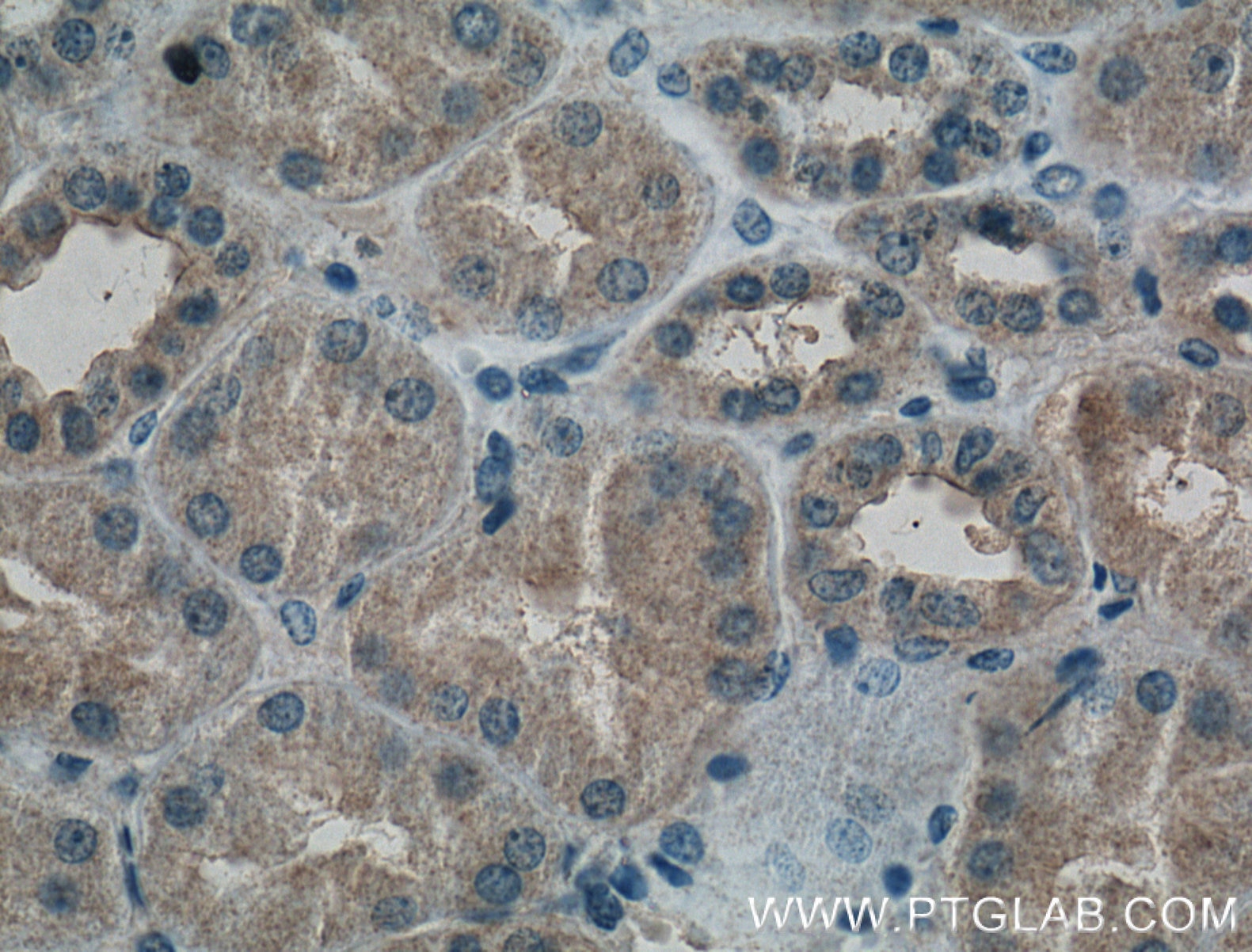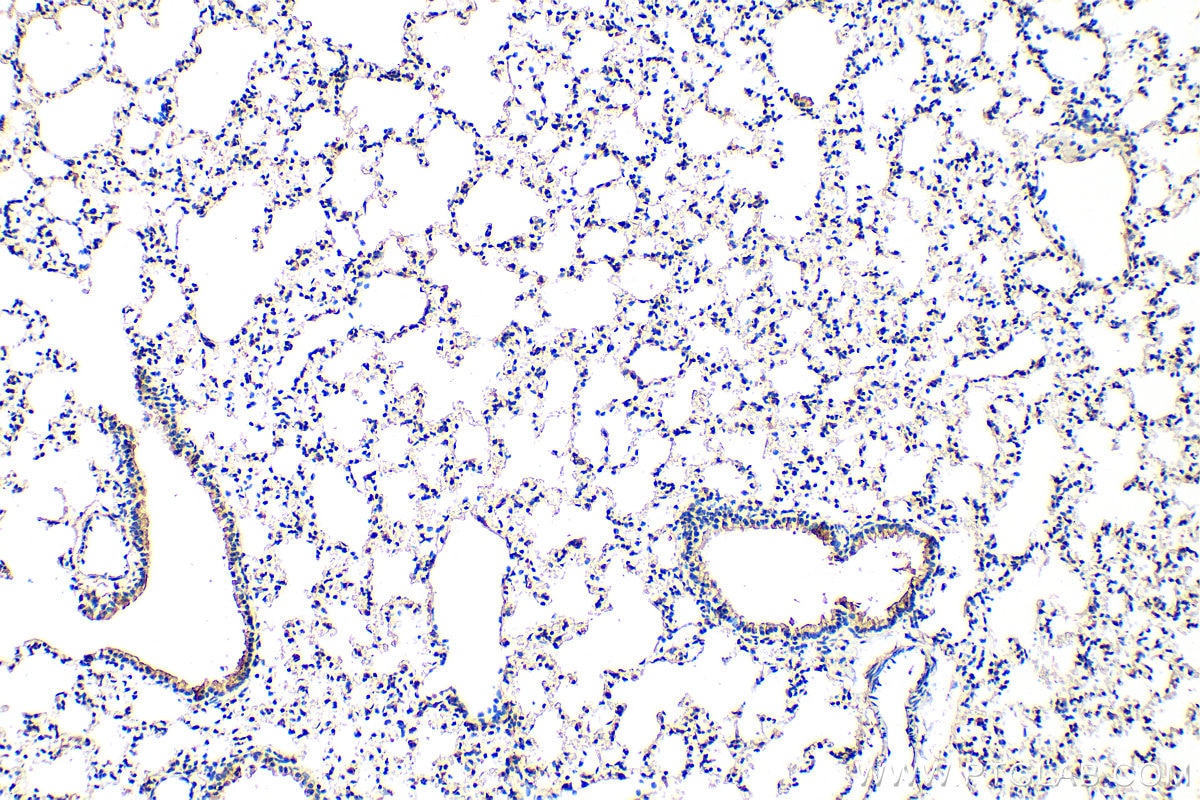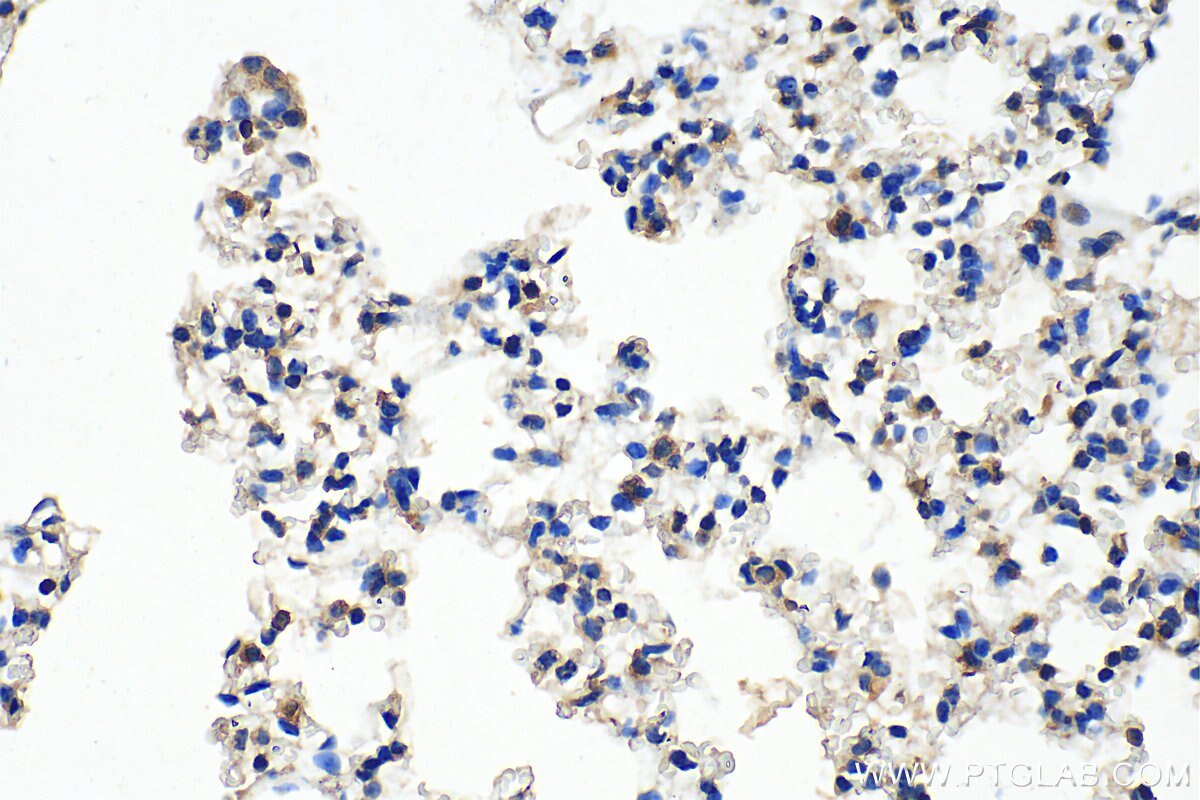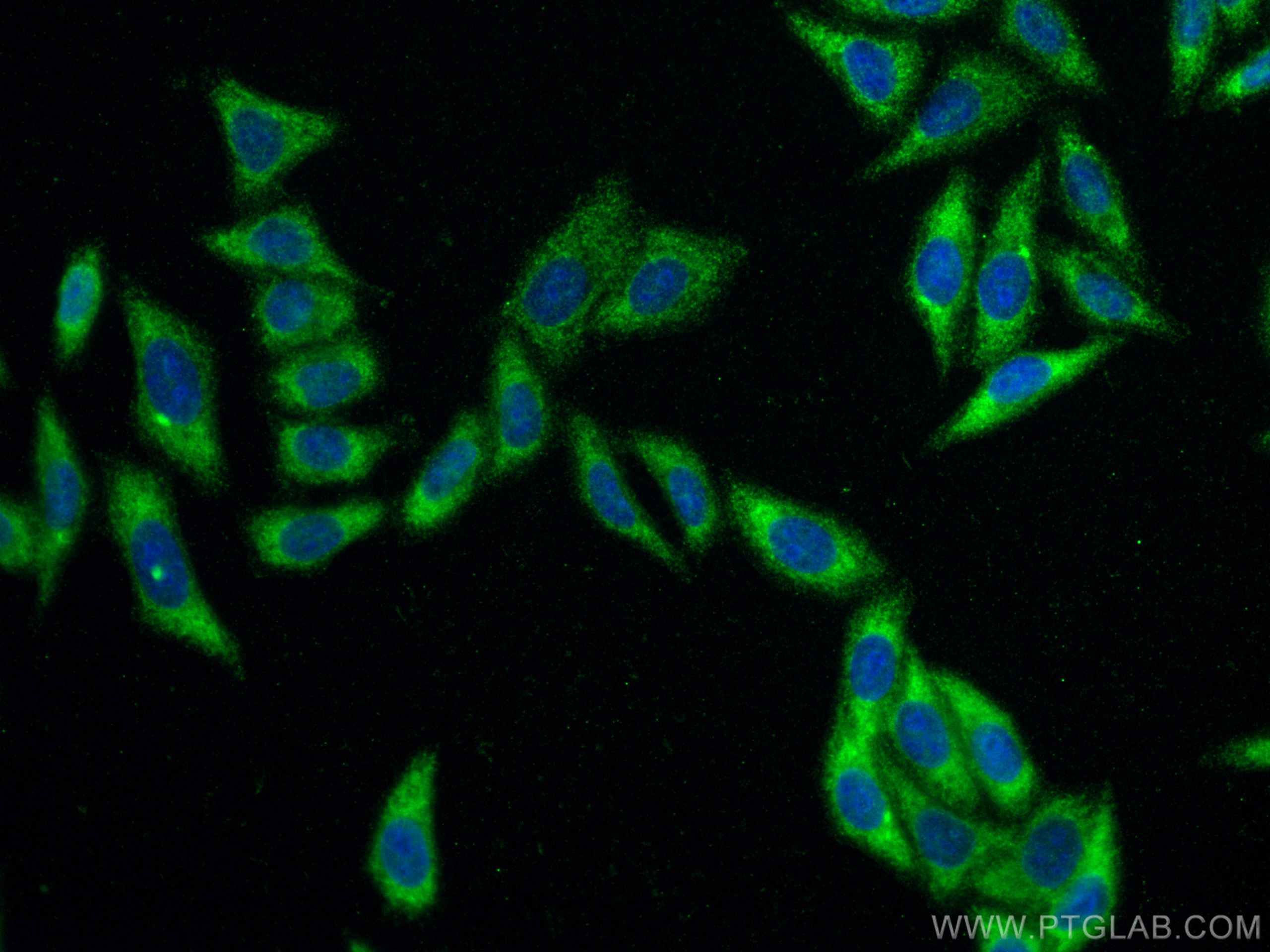Anticorps Monoclonal anti-Serpin E1/PAI-1
Serpin E1/PAI-1 Monoclonal Antibody for WB, IHC, IF/ICC, Indirect ELISA
Hôte / Isotype
Mouse / IgG1
Réactivité testée
Humain, porc, souris
Applications
WB, IHC, IF/ICC, Indirect ELISA
Conjugaison
Non conjugué
CloneNo.
1H4A5
N° de cat : 66261-1-PBS
Synonymes
Galerie de données de validation
Informations sur le produit
66261-1-PBS cible Serpin E1/PAI-1 dans les applications de WB, IHC, IF/ICC, Indirect ELISA et montre une réactivité avec des échantillons Humain, porc, souris
| Réactivité | Humain, porc, souris |
| Hôte / Isotype | Mouse / IgG1 |
| Clonalité | Monoclonal |
| Type | Anticorps |
| Immunogène | Serpin E1/PAI-1 Protéine recombinante Ag22411 |
| Nom complet | serpin peptidase inhibitor, clade E (nexin, plasminogen activator inhibitor type 1), member 1 |
| Masse moléculaire calculée | 402 aa, 45 kDa |
| Poids moléculaire observé | 45-50 kDa |
| Numéro d’acquisition GenBank | BC010860 |
| Symbole du gène | PAI-1 |
| Identification du gène (NCBI) | 5054 |
| Conjugaison | Non conjugué |
| Forme | Liquide |
| Méthode de purification | Purification par protéine G |
| Tampon de stockage | PBS only |
| Conditions de stockage | Store at -80°C. 20ul contiennent 0,1% de BSA. |
Informations générales
SERPINE1, also named Plasminogen activator inhibitor type 1 (PAI-1), is a member of the serine protease inhibitor (SERPIN) superfamily. PAI-1 is the principal inhibitor of tissue plasminogen activator (tPA) and uPA, and hence is an inhibitor of fibrinolysis. Defects in this gene are the cause of plasminogen activator inhibitor-1 deficiency (PAI-1 deficiency), and high concentrations of the gene product are associated with thrombophilia. The mature 379-residue protein had a calculated unglycosylated molecular mass of 42.7 kD. Three putative glycosylation sites were found.
